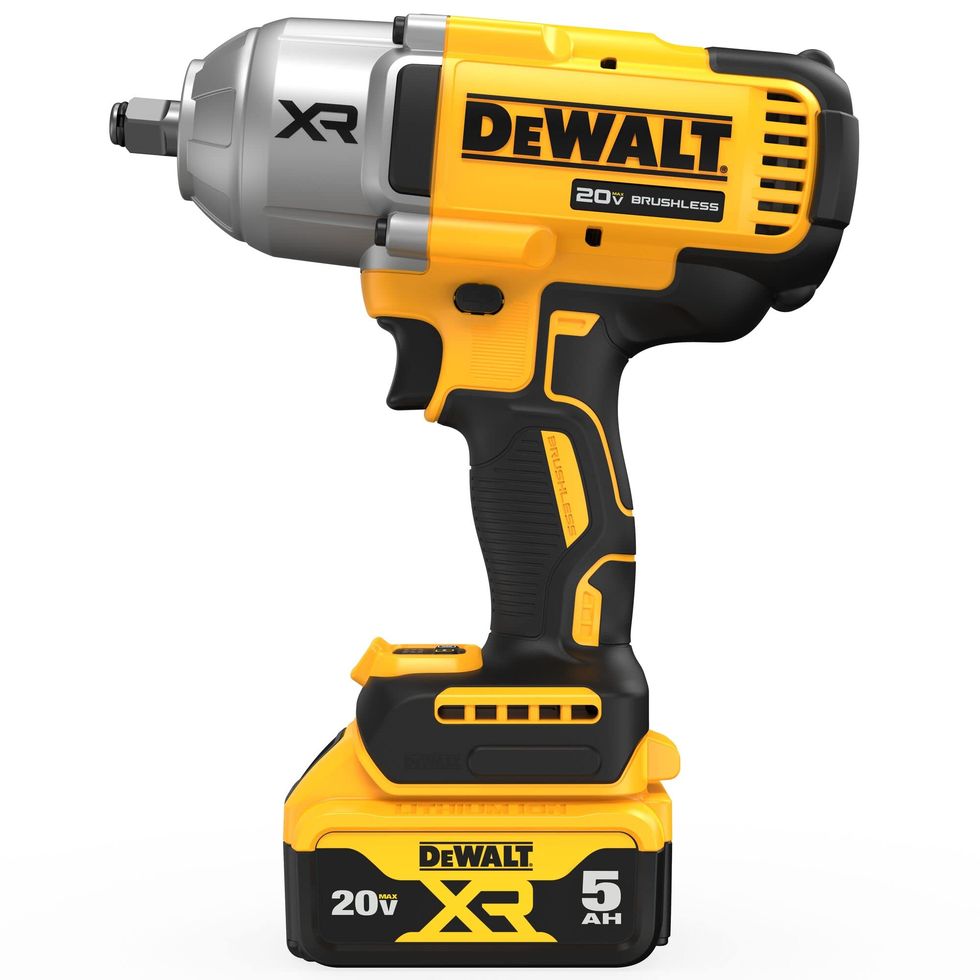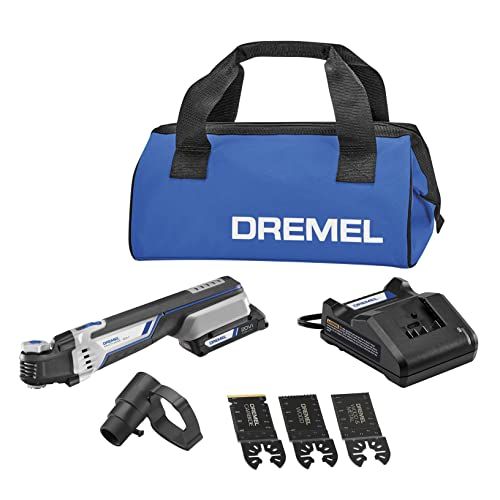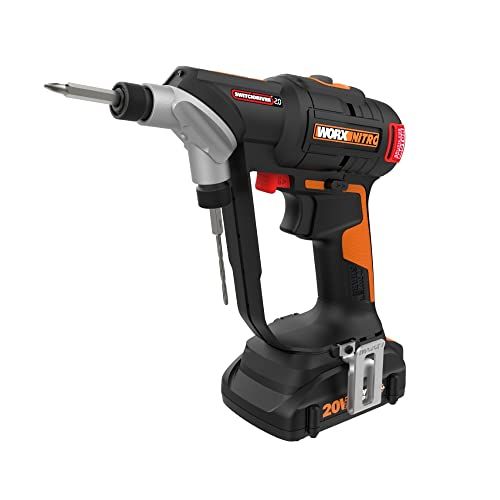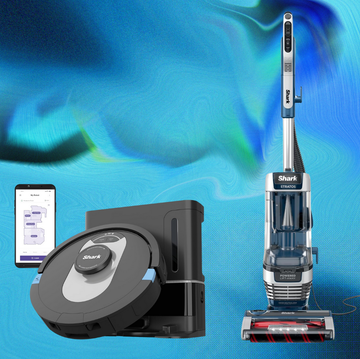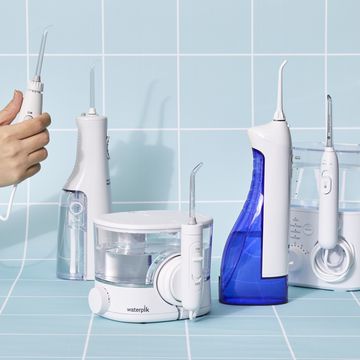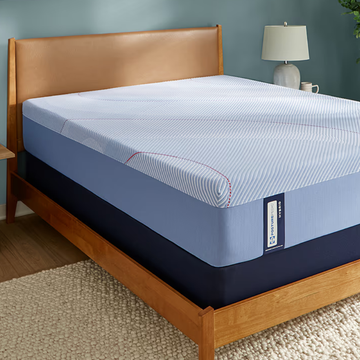Choosing the best tool brand isn’t just about picking a color or chasing the highest price tag. It’s about finding a lineup that matches your project needs, budget, and future tool purchases. From a first-time homeowner hanging shelves to a weekend warrior building a deck, the right tool brand can make every job easier and more efficient. That’s why it’s worth thinking about more than just cost. Battery platform compatibility, warranty support, and real-world durability all play a role in making a smart choice.
During my formative years, I spent weekends with my dad fixing up our home. From learning how to replace outlets around the house to building a greenhouse, DIY was our way of life, and I’ve still got our old Craftsman drill and chuck key to prove it. I’ve used all different brands of tools, and although I have my personal preference, I recognize that what works best for me might not be as suitable for others.
Buying tools can be a hefty investment, so after consulting this guide, I recommend getting your hands on a tool to feel its weight, balance and movement, which can help you make an informed decision.
What are the best tool brands?
DeWalt: Best Overall Tool Brand
Pros
- Hits the sweet spot between price and performance
- Has some of the best power drills and cutting tools around
Cons
- Line of battery-powered tools not as expansive as other brands
- Tools are often on the heavier side
Why We Love It: DeWalt has been making tools for 100 years, and they have consistently delivered a blend of professional-grade performance and user-friendly design. Their popular 20V MAX platform offers a wide array of tools, ensuring compatibility and convenience for users of all levels. In Good Housekeeping's evaluations, DeWalt's tools, such as the 20V MAX Impact Wrench Kit, have been praised for their strength and effectiveness, making them a top choice for both professionals and DIY enthusiasts.
Beyond impacts, I love my DeWalt mechanics tool set and circular saw, which have also received high marks from Good Housekeeping and its testers. “DeWalt is a favorite of the 'prosumer' brands," says Dan DiClerico, director of the Good Housekeeping Institute Home Improvement & Outdoor Lab. “You’ll see its tools on many professional job sites, but the price point is also accessible for many consumers.”
During extensive field tests, DeWalt tools routinely demonstrated superb speed and power, especially when it comes to drills and cutting tools. "Solid construction is matched by durable design and reliable performance over many years of testing," noted DiClerico. One caution: testers have often found DeWalt tools to be on the heavier side.
Lab pick: In our latest guide to the top-rated impact wrenches, the DeWalt 20V MAX Cordless Impact Wrench Kit demonstrated everything we love about the brand, including quality destruction and heavy-duty torque that helped it make short work of rusted nuts and bolts in our performance tests.
Ryobi: Best Value for DIYers
Pros
- One of the largest selections of battery-powered tools
- Backed by Home Depot's generous 3-year warranty
Cons
- Some tools struggle with heavy-duty tasks
Why We Love It: Ryobi is one of two Home Depot-exclusive power tool brands, along with Ridgid. Our experts like the breadth of Ryobi's One+ battery platform, which powers over 300 tools. From outdoor power equipment to cleaning and recreation, Ryobi has your household covered.
Consumer testers often praise the accessibility of Ryobi tools, including ease of assembly and operation. The battery-powered tools have consistently performed well across a range of light-to-medium-duty performance tests. Though Ryobi's tools are generally not cut out for heavy-duty work, which is why the brand is not a fixture on construction sites.
Lab pick: Ryobi's 18V Cordless Drill was a standout in our latest test of cordless drills, delivering plenty of power for drilling into drywall and dimensional lumber. The drill's lightweight design and the ergonomic controls minimized arm and hand fatigue.
Milwaukee: Best for Professionals
Pros
- Premium brand known for superb performance and reliability
- Many tools carry an industry-leading 5-year warranty
Cons
- Some of the steepest price tags you'll see in the tool aisle
Why We Love It: Milwaukee's M18 and M12 systems are renowned for their robustness and innovation. Their tools, like the M18 FUEL Hammer Drill, are a staple on job sites and have been recognized by our experts for their power and durability. "Plumbers, electricians and other trades that do a lot of metalwork love Milwaukee tools because the powerful tools are great at boring holes and ripping through metal,” said DiClerico.
The Milwaukee M18 FUEL 18V Circular Saw Kit was also highlighted as the "Pro's Pick" in Good Housekeeping's circular saw review, emphasizing its exceptional power and performance. But don’t overlook the smaller size and versatility of the M12 system, which fits the needs of most homeowners.
As one tester put it, “You can tell when you have a Milwaukee tool in your hands by its weight, sturdy feel, ergonomics and power.”
Lab pick: Though Milwaukee's wheelhouse is still its beefy boring tools, the brand has expanded into other categories, including outdoor power equipment. Its power pruner makes it easy to prune branch after branch with precision cuts every time; a single charge can deliver up to 1,000 cuts of 1/2-inch branches.
Craftsman: Best for Everyday DIY
Pros
- The legacy tool brand has really upped it game in recent years
- Excellent value across a wide range of tools
Cons
- Tool chests are not as robust as they once were
Why We Love It: Craftsman combines tradition with modern innovation, offering reliable tools for everyday tasks. Backed by Stanley Black & Decker, Craftsman's tools have been revitalized, and we've seen notable improvements in quality and performance, making them accessible and dependable for homeowners. My Craftsman socket sets have served three generations of my family and are as good as new.
Testing notes: Our experts have been surprised to see some Craftsman tools perform as well as their professional-grade competitors in tests. Although the majority of Craftsman's power tool offerings are battery-powered, it also carries many corded electric tools, especially heavy-duty products, like chop saws and grinders.
Lab pick: This battery-powered Craftsman made the winner's circle in our latest pressure washer tests. Boasting 1,500 PSI, it can tackle tougher jobs like cleaning decks and fences. Not having to deal with a power cord is a nice convenience, plus it has an onboard detergent tank.
Makita: Best for Prosumer Performance
Pros
- Professional-grade tools are built to last
- Generous warranties
Cons
- Product line is not quite as expansive as other brands
Why We Love It: Makita has built a decades-long reputation for making tough, pro-grade tools that are just as useful in a contractor’s truck as they are in a DIYer’s garage. Makita’s 18V LXT platform is one of the largest and most reliable cordless platforms, and is one of my personal favorites because of its light weight and power.
Our facilities and maintenance crew routinely reach for Makita tools when building test rigs and staging equipment. “The Makita is the circular saw of choice with the crew as well as our experts at the Good Housekeeping Institute,” added DiClerico. They favor its rear-handle design and brushless motor for its power and runtime, though the 12.4-pound weight makes it more suitable for serious jobs than casual weekend projects.
Lab pick: Makita is our heavy-duty favorite in our guide to the best circular saws. The Makita XSR01Z 36V proved to be an extremely durable saw through dozens of hours of testing, thanks in part to its brushless motor technology. The saw uses two 18-volt lithium-ion batteries for exceptional power and runtime.
Skil: Best for Budget-Friendly Performance
Pros
- Professional performance, DIY prices
- Durable construction
Cons
- Their lineup isn’t as extensive as those from Ryobi, DeWalt or Milwaukee
Why We Love It: Skil has carved out a niche for delivering reliable, affordable tools that don't compromise on quality. (It's the DIY-friendly brandmate of Skilsaw, a brand aimed at professionals.) For consumers who only pull out their power tools a few times a year and hire out for heavier-duty projects, Skil is the go-to brand.
When testing Skil power tools, our experts often find features that are more common on pricey, professional brands. That includes brushless motors, a design that our tests have found extremely durable over time.
Lab pick: When our pros put leaf blowers to the test, the Skil Core 40 Brushless Leaf Blower Kit was named our best value pick, thanks to its capable performance and competitive price tag. Its impressive airflow made short work of heavy leaf clearing, and the leaf blower is also solidly built.
Stihl: Best Outdoor Tool Brand
Pros
- Exceptional performance across the board
- Durable and many tools are made in the USA
Cons
- Premium price point, definitely a splurge for most homeowners
- Availability can be limited depending on nearby dealers
Why We Love It: Stihl is renowned for its high-quality outdoor power equipment, especially their chainsaws. But their battery-powered tools, like the versatile and Good Housekeeping Home Renovation Award winner KMA 80 R multi-use tool, have been praised for their performance and eco-friendliness, making them a worthy investment for those seeking top-tier outdoor tools.
Among our tests of outdoor power equipment, Stihl consistently ranks as a leader in performance and durability. It offers some of the quietest tools available, and its lineup of pressure washers is durable and feature-rich.
Lab pick: The Stihl Garden Pruner stood out in our mini chainsaw tests for its compact design and efficient cutting power. The 4-inch excelled across a slew of tough yard tasks, including cutting through 2-inch-thick tree branches and pruning a thorny rose bush with hard-to-reach stems.
Dremel: Best for Precision and Rotary Tools
Pros
- Unmatched for fine-detail work like engraving, polishing, sanding and carving
- Lightweight and easy to operate, especially for small-scale or intricate projects
Cons
- Not made for jobs that require high torque or cutting through dense materials
Why We Love It: Dremel's rotary tools are indispensable for detailed work, offering precision and versatility. Ideal for crafting, engraving and small-scale projects, Dremel tools have always been a part of my DIY toolkit.
I have a variety of Dremel tools, including the Dremel 3000 and the previous Good Housekeeping Home Renovation Award winner, the Dremel Multi-Max. Both are exceptional tools that I use often. Dremel has cornered the market on rotary tools and their compact saws and oscillating tools can compete with the best from other brands.
Lab pick: Our experts liked the lightweight, ergonomic design of Dremel's Cordless Oscillating Multi-Tool Kit, which made it easy to handle and control. It also packed plenty of power across a variety of performance tasks, like cutting out old grout and caulk from bathroom walls and trimming door casings when putting down a new floor. “We tested the Multi-Max on a variety of hardwoods and softwoods,” said DiClerico. “It did well in all types of cuts.”
Stanley: Best Hand Tool Brand
Pros
- Great hand tools for everyday use that include tape measures, hammers and screwdrivers
- Widely available and excellent value
Cons
- No power tools, just wet/dry vacuums and hand tools
Why We Love It: Stanley provides durable and ergonomic hand tools, essential for any toolbox. When testing tool sets, its 65-Piece Tool Set came out on top, highlighting its quality and comprehensive selection, making it a great choice for homeowners.
My Stanley tape measure has lasted for years and was half the cost of more expensive brands. It has a wide variety of tool sets available, and the Good Housekeeping Institute has recognized its commitment to quality, which ensures that users have the right tools for every type of task. Through years of tool testing at the Institute, Stanley has earned an excellent reputation for quality and reliability. Most of its tools offer a great combination of reliability and value.
Lab pick: Stanley earned best overall honors in our guide to the best tool sets. It has everything needed for most basic tasks without taking up tons of storage. Testers praised the quality of the 16-foot tape measure, which opens and retracts smoothly. The set also includes a level, a helpful tool for hanging shelves or installing appliances.
Worx: Best for Light DIY
Pros
- Innovative and clever designs like the Switchdriver and Jawhorse
- Great value
Cons
- Limited tool selection
Why We Love It: Worx offers innovative and lightweight tools, perfect for small jobs around the house. In our guide to the best mini chainsaws, its 20V 10-inch Chainsaw was a standout for its excellent value, emphasizing its affordability and efficiency for light outdoor tasks.
Our testers noted that the brushed motor on the Worx isn’t as durable as models with a brushless motor design, like the Milwaukee. So you won’t want to push this mini chainsaw too hard. But for moderate cutting power at an excellent price, the Worx is worth a look.
Lab pick: The Worx 20V Nitro SwitchDriver 2-in-1 might look like a gimmick, but it's actually very handy, with two revolving chucks that allows you to drill pilot holes and drive screws without switching accessories. That saves time on all kinds of projects, including installing shelves and assembling furniture.
How we test the best tool brands
At the Good Housekeeping Institute, we evaluate tools with the everyday homeowner and DIYer in mind. That means testing products not just for raw power, but also for usability, durability and overall value. Our engineers and product experts assess how well each tool performs common tasks and how easy it is to handle, store and maintain.
Each tool is used in-house and often sent to outside testers to see how it holds up on real projects. For example, we’ve tested circular saws by making repeated cuts through different types of lumber, drills by driving fasteners into hardwoods, and leaf blowers by clearing wet grass and debris from walkways. We also look at battery life for cordless tools and whether features like built-in lights or speed settings make a meaningful difference.
We compare tools across similar price points to determine which ones offer the best combination of performance, comfort and reliability.
What to look for in a tool brand
The best tool brand for you depends not just on what you’re building, but how often you build, how much you want to spend and whether you're starting from scratch or adding to an existing setup.
✔️ Battery platform compatibility: If you're going cordless, the battery system is one of the most important decisions you’ll make. Sticking with a brand that offers a broad lineup of tools powered by the same battery saves money and storage space.
✔️ Tool variety and ecosystem: A brand’s depth matters, especially if you plan to grow your toolkit over time. Look for companies that offer not just the basics, but a wide range of specialty tools — circular saws, impact wrenches, multi-tools and even outdoor gear.
✔️ Durability and build quality: Some brands are simply built tougher. In Lab testing, we pay close attention to how tools hold up under pressure. Pro brands like DeWalt, Makita and Milwaukee routinely perform well here, while budget-focused brands may sacrifice some ruggedness for cost savings.
✔️ Warranty and customer support: A strong warranty isn’t just a safety net; it’s a sign the brand stands behind its tools. Many brands offer limited warranties of 3 to 5 years, but others offer lifetime service agreements (with registration).
✔️ Retail availability: Even a great brand can be a headache if it's hard to find. We favor brands that are widely available at national retailers like Home Depot, Lowe’s, Amazon and Walmart. Store-exclusive brands like Kobalt (Lowe’s) or Ridgid (Home Depot) are solid options, but are best for shoppers loyal to a single store.
FAQs
Can I mix and match tools from different brands? Yes — especially with hand tools, where brand mixing is common and usually doesn’t impact performance. But for cordless power tools, it’s best to stick with a single brand. Most systems use proprietary batteries, so staying within one platform means you can share batteries and chargers across your tools, saving time, space and money.
Do more expensive tools always mean better quality? Not always. Higher-priced tools often come with features like brushless motors, longer warranties or better ergonomics. But many affordable brands, like Ryobi or Craftsman, offer excellent performance for everyday projects.
How important is choosing the right battery platform? It’s one of the biggest decisions if you’re buying cordless tools. Once you invest in a battery system, you’re essentially committing to that brand for future purchases, unless you don't mind spending more money on new batteries.
Why trust Good Housekeeping?
The experts at the Good Housekeeping Institute have spent years testing power tools, hand tools and outdoor equipment in our Lab and in the field. We've drilled into concrete, cut lumber, assembled furniture and reviewed more than 100 products across key categories like cordless drills and tool kits. We’ve also surveyed homeowners and leaned on our editors’ years of hands-on renovation experience.
This guide was written with input from our Lab pros, product editors and longtime contributor Timothy Dahl, who has spent almost 20 years covering home improvement for Popular Mechanics, Lifehacker, and Good Housekeeping.
Our Director of Home Improvement & Outdoor, Dan DiClerico, has covered tools for more than two decades for brands like This Old House and Consumer Reports before joining the Good Housekeeping Institute in 2022. He manages our fleet of test engineers and product analysts and has extensive job site experience working on renovations and remodels.
Timothy Dahl is an experienced writer and editor covering home improvement, DIY, and lifestyle topics for nearly 20 years. With a deep background in hands-on testing and reporting, he has reviewed and worked with hundreds of tools, products, and home innovations. Timothy's work has appeared in The New York Times, Wired, and Popular Mechanics, and he's the founder of Charles & Hudson. He specializes in making complex projects accessible and is passionate about empowering homeowners with clear, actionable guidance.
Having written thousands of product reviews and how-to articles on all aspects of home ownership, from routine maintenance to major renovations, Dan (he/him) brings more than 20 years of industry experience to his role as the director of the Home Improvement & Outdoor Lab at the Good Housekeeping Institute. A one-time roofer and a serial remodeler, Dan can often be found keeping house at his restored Brooklyn brownstone, where he lives with his wife and kids.


